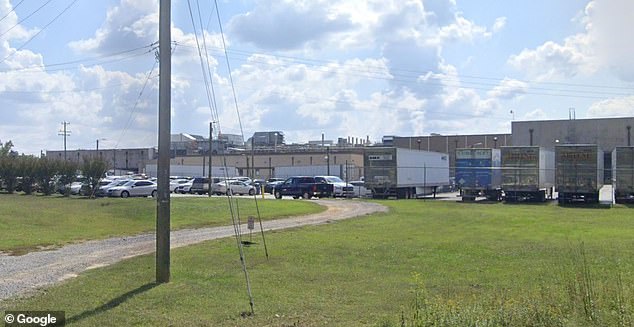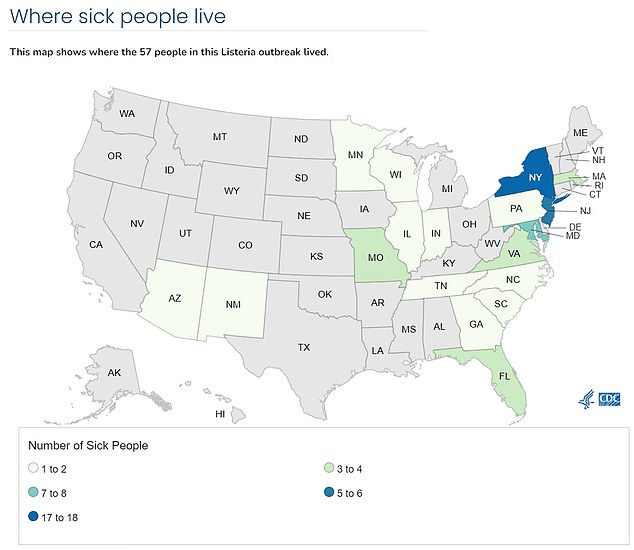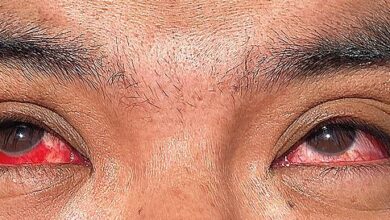Mold, cockroaches and blood found in ‘rancid’ Boar’s Head meat factory linked to deadly listeria outbreak, recall







Inspectors found mold, mildew and insects at the Boar’s Head plant, the center of a multi-state listeria outbreak.
Reports from the U.S. Department of Agriculture’s Food Safety and Inspection Service show the $1 billion company was warned about 69 violations at its Jarratt, Virginia, plant last year.
Concerns were raised before Boar’s Head Deli Meat caused the largest listeria outbreak in the U.S. in more than a decade, contaminating dozens of products.
In one report, inspectors said they saw flies flying in and out of a barrel of pickles, while a trail of ants crawled along the nearby walls.
Inspectors also described how mold and mildew had developed on surfaces and that there was a “rancid odor” in some parts of the factory and that parts of the floor were covered in “extensive blood.”

Above is the Jarratt, Virginia plant, the center of the Listeria outbreak

This is the exterior of the factory, which Boar’s Head says is now closed for cleaning.
Nine people have now died after eating Boar’s Head meat, while 57 people have been hospitalized in 18 states, including New York, Florida and New Jersey.
It is the largest foodborne illness outbreak in the U.S. since the 2011 cantaloupe outbreak, when listeria-contaminated cantaloupe sickened 147 people and killed 33.
Among the dead was Gunter Morgenstein, a father of three and Holocaust survivor who regularly ate the company’s liverwurst because it reminded him of his native Germany.
Boar’s Head has now recalled approximately 7.2 million pounds of processed meats due to the outbreak.
The Jarratt factory has also been closed for a thorough cleaning and all staff have been sent to the factory for retraining.
The documents, which have been made public on the basis of a request under the Government Information (Public Access) Act, CBS Newsshow that Boar’s Head was warned of problems at the factory from August of last year until July 27, two days after the first recall was announced.

The map above shows the states where illnesses linked to the listeria outbreak in processed meats have been reported
No images have yet been released of the mold and insects in the building.
Boar’s Head said in a statement: “We deeply regret the impact this recall has had on the families affected.
“There are no words that can fully express our sympathy and the sincere and deep pain we feel for those who have suffered loss or illness.”
In July of this year alone, the month the company issued the first recall, they were warned of more than 15 safety violations.
For example, mold grew around the sink where workers washed their hands before touching meat, black mold covered the outside of four steel drums, and at least 10 dead and live insects were found in a produce storage area.
This month, inspectors also discovered condensation dripping from a ceiling with a dark brown or dark brown tint onto products including Beechwood Hams.
A clear liquid was also observed dripping from the ceiling in one spot, while a fan blew the liquid onto uncovered hams in the hallway.
Other violations included a warning in January that there was a black, mold-like substance on the walls of the smokehouse area, and a warning in February for “large amounts of blood” on the floor of the plant.
The CDC urges people to check labels before consuming Boar’s Heada products, as some products have expiration dates extending to October 2024.


Gunter “Garshon” Morgenstein, a father of three from Newport, Virginia, is pictured above with his wife Peggy (left). He died after contracting a listeria infection after eating Boar’s Head deli meats. Sue Fleming, also 88, of Missouri, is also suing over her listeria infection

He had eaten a Boar’s Head liverwurst the day before he got sick, which is now included in the multi-state recall for listeria-contaminated products
Recalled products have the codes EST.12612 or P-12612 in the USDA inspection mark on the product labels.
We advise buyers to throw the products away and return them to the store for a full refund.
Customers are also urged to clean their refrigerators, containers and surfaces that have come into contact with the sliced meats.
Keeping meat cold does not eliminate listeria.
The bacteria can remain on surfaces for weeks and end up in cutting tools and countertops that are not thoroughly cleaned regularly.
Listeria, which kills about one in five people infected, is especially dangerous for the elderly, pregnant women and people with underlying health conditions.
These people have a weaker immune system, which may make them less able to fight an infection.
Symptoms may appear several days to 10 weeks after infection and initially begin with fever, chills, stomach cramps, and diarrhea.
As the infection progresses, patients may experience convulsions, loss of balance, and confusion.
Infections can be treated with antibiotics. These are administered intravenously and can kill the bacteria.




